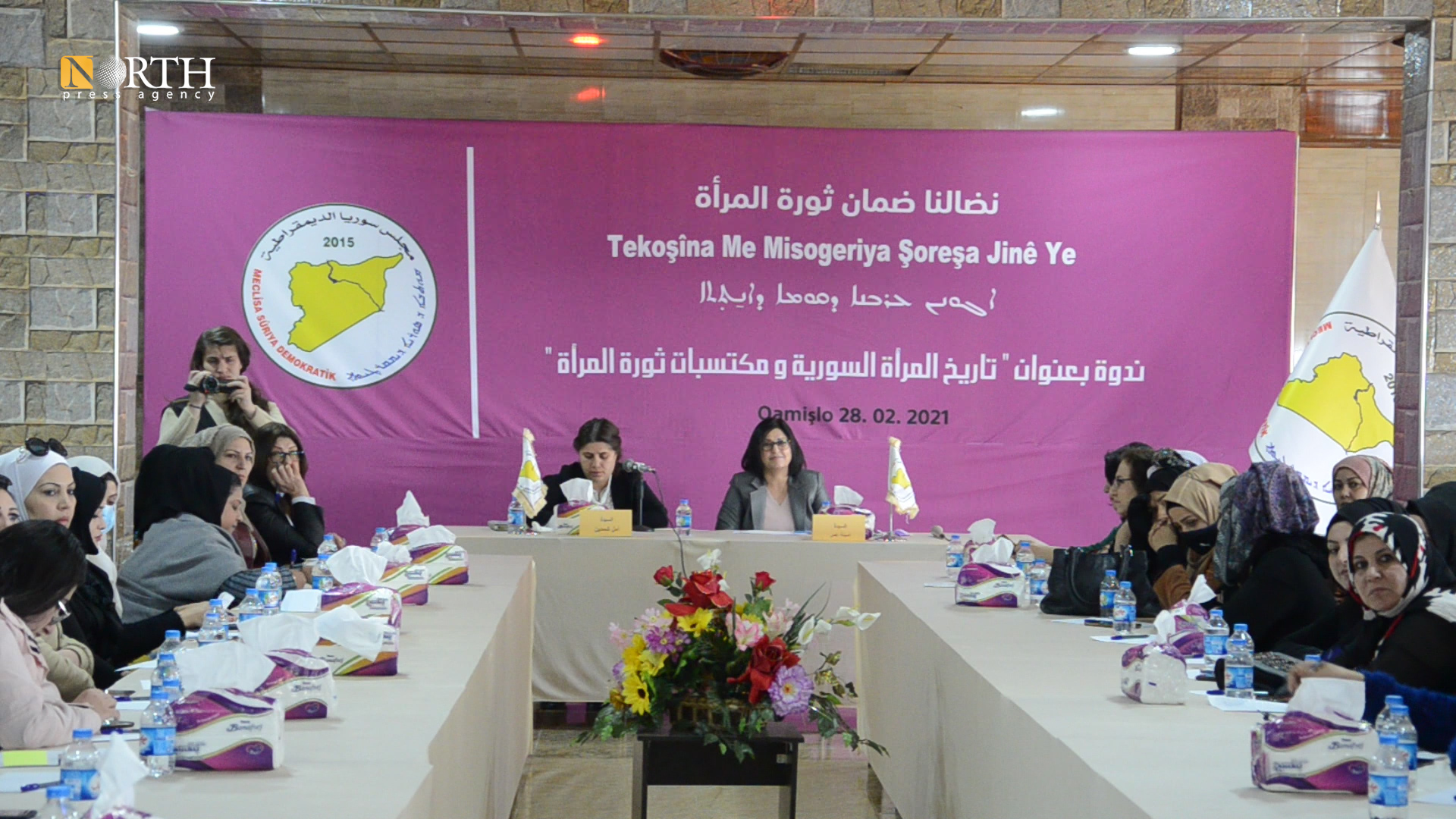SDC holds a symposium on Syrian women’s situation in Qamishli
QAMISHLI, Syria (North Press) – On Sunday, the Syrian Democratic Council (SDC) held a dialogue session on the “The history of the Syrian women and their gains during women’s revolution” in the city of Qamishli, northeast Syria.
The symposium, that was organized by the SDC Woman’s Office, was attended by female representatives of several women and human rights institutions in northeast Syria.
During the symposium, the participants talked about their personal experience and the impact of the “Women’s Revolution” in northeast Syria on them which enhanced them to possess the sufficient courage to took part in the political field.
“The Syrian woman, who was deprived of her rights during the past period, is now playing an effective role, making her political decision and issuing her own laws,” Amina Omar, the SDC co-chair told North Press.
“The laws issued by the Autonomous Administration of North and East Syria (AANES), including the prohibition of minors’ marriage and polygamy, in addition to other laws, protect the women from all forms of violence,” Omar said.
“During the last century, the Syrian community went through several political turning points, where the woman experienced systematic policies and she was excluded from the political field,” she added.
Omar pointed out that after the Baath Party took power, the woman was completely marginalized, prevented from practicing her activities and was only restricted the pro-government Woman Union.
“The written history excludes the woman from the historical facts and did not concentrate on her struggle,” Omar noted.
The symposium was divided into two sessions, the first dealt with the history of the Syrian women from the beginning of the 20th century to the present time, and the other dealt with the women’s reality and gains during the Syrian war.
The symposium was held in conjunction with the approaching of the International Women’s Day, which is celebrated around the world on March 8 every year. It is celebrated to denote the women’s respect, appreciation and love for their economic, political and social achievements.

